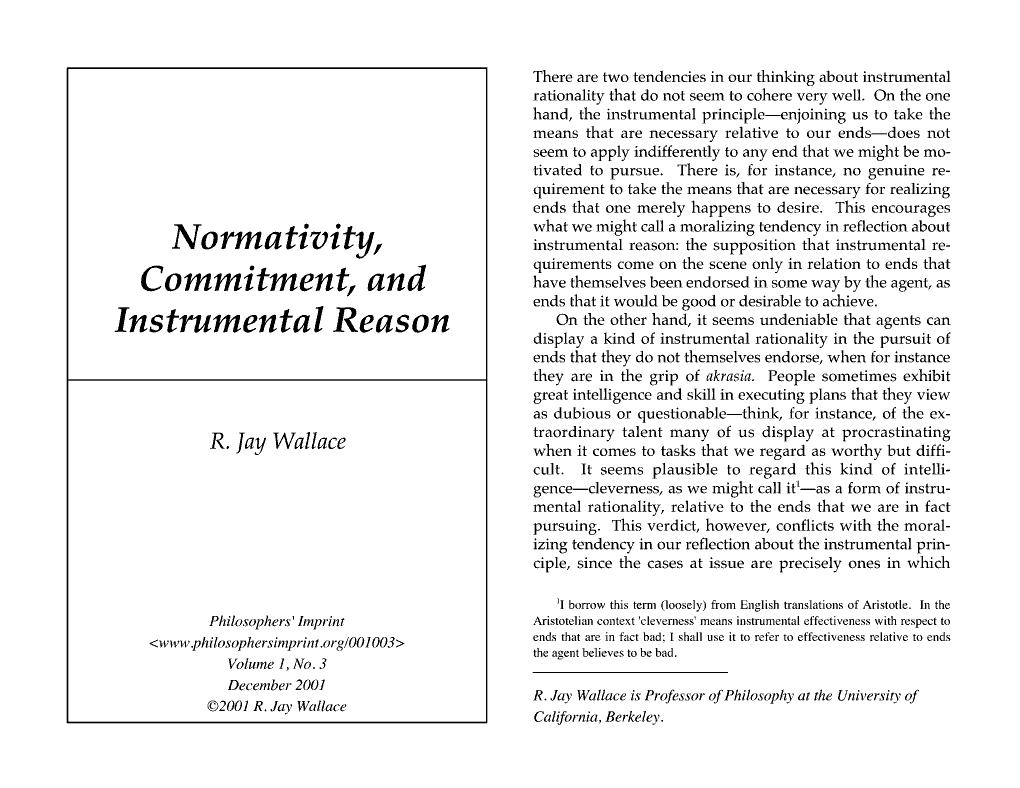Normativity, Commitment, and Instrumental Reason
Skip other details (including permanent urls, DOI, citation information): This work is licensed under a Creative Commons Attribution-NonCommercial-NoDerivatives 3.0 License. Please contact [email protected] to use this work in a way not covered by the license.
For more information, read Michigan Publishing's access and usage policy.
Abstract
This paper addresses some connections between conceptions of the will and the theory of practical reason. The first two sections argue against the idea that volitional commitments should be understood along the lines of endorsement of normative principles. A normative account of volition cannot make sense of akrasia, and it obscures an important difference between belief and intention. Sections three and four draw on the non-normative conception of the will in an account of instrumental rationality. The central problem is to explain the grip of instrumental requirements even in cases in which agents do not fully endorse the ends they are pursuing. The solution I propose appeals to coherence constraints on the beliefs that condition the distinctive volitional stance of intention.



